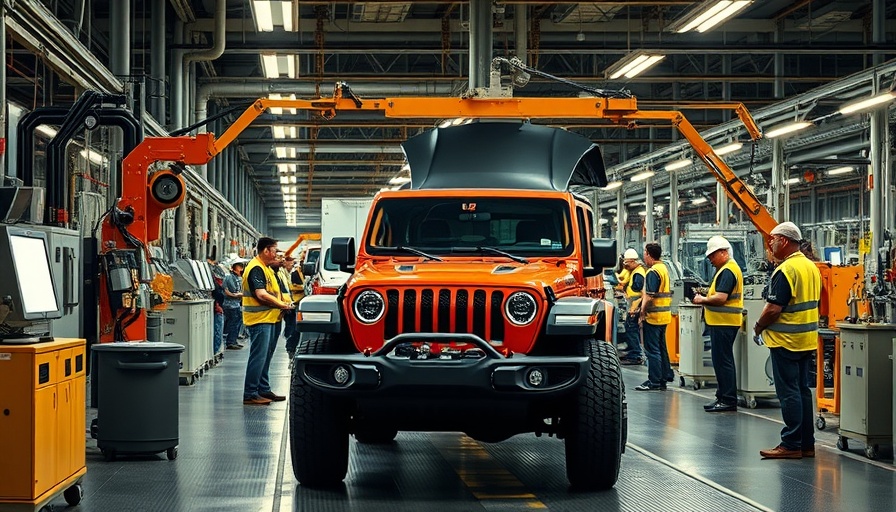
Stellantis Sales Plummet: A Deep Dive into Declining Dodge Performance
The automotive industry is experiencing a tumultuous period as Stellantis, the parent company of brands like Dodge, Jeep, and Chrysler, grapples with alarming sales declines. This trend became particularly evident with Dodge's startling drop of 49% in sales in the first half of 2025. Overall, Stellantis saw an 11% decline in its U.S. operations, raising questions about the company's strategy and product reliability.
In 'Stellantis is Shutting Down and You Can Get a Hell of a Deal,' the conversation highlights alarming trends in vehicle sales, prompting a closer look at the factors behind Stellantis' declining performance.
Unpacking the Reasons Behind the Decline
Stellantis' woes can be traced back to various factors, chief among them being a broader loss of consumer confidence in the reliability of its vehicles. Dodge's record low sales reveal a growing sentiment among car buyers that these vehicles may no longer provide the quality they expect. Anecdotal evidence, such as the story of a woman whose new Jeep's engine failed shortly after purchase, highlights these issues, underscoring the concerns of potential buyers who recall past reliability problems.
Industry Trends: The Rise of Competitors
The decline in Stellantis' sales coincides with a surge in popularity for competitors like Toyota, particularly with their new electric SUV, the BZ3X, which is only available in China but is rapidly gaining traction. The fact that it sells for as low as $15,000 is compelling for budget-conscious consumers. As foreign brands gain market share, the pressure mounts on Stellantis to reevaluate its offerings and customer service.
The Challenge of Dealership Practices
Another factor contributing to the negative experience for Stellantis customers is the behavior of its dealership network. Many dealers are independent from Stellantis, and they prioritize profit over customer satisfaction, often hesitating to fix vehicles under warranty. This creates a frustrating experience for owners facing mechanical issues, which further damages the brand's reputation.
Electric Vehicles: A Double-Edged Sword for Stellantis
The automotive landscape is undeniably shifting towards electric vehicles (EVs), with companies like Ford attempting to leverage subsidies to support their development of electric batteries under a controversial partnership with the Chinese battery company CATL. However, whether these efforts will turn into a significant competitive edge remains uncertain. As Stellantis struggles to maintain traditional combustion engine sales, the race to catch up in the EV market continues.
Consumer Behavior and Future Predictions
With Dodge’s sales slumping and numerous complaints regarding the reliability of Stellantis vehicles flooding online forums, consumer sentiment is steering towards mistrust. Industry analysts suggest this situation may trigger a longer-term trend, where customers consider alternatives, pushing Stellantis to either improve product quality dramatically or risk losing an entire generation of buyers.
The revelations from Stellantis serve as a cautionary tale for both manufacturers and consumers. For car buyers, conducting thorough research before purchasing is essential, especially as brands like Stellantis work to navigate through these stormy waters.
To stay ahead in the rapidly evolving car market, it's crucial for consumers to remain informed about brand reliability, seek out customer reviews, and approach car purchases with a discerning eye.
 Add Row
Add Row  Add
Add 




Write A Comment